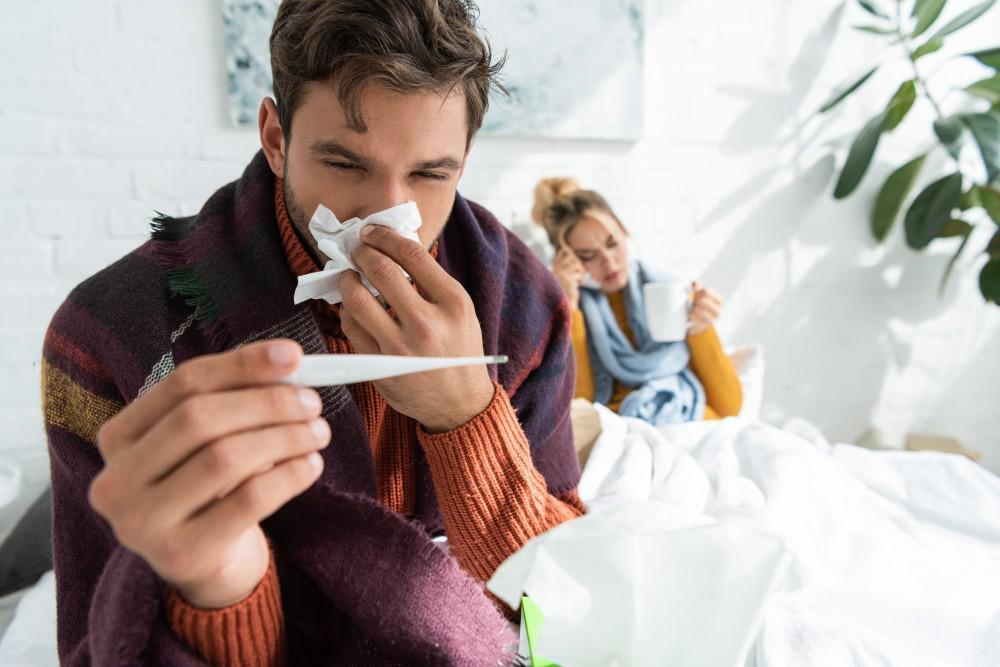1. Drink up
Staying hydrated is always important. It affects the health of your cells but it also plays a big role in kicking a cold. For one, it helps keep your mucous membranes moist, so they don’t get crusty and uncomfortable. But that’s not all.
“Drinking water helps fight off the illness by clearing pathogens from your respiratory system in the form of mucus,” Ren says. “Proper hydration works to regulate your body temperature and maintain healthy skin and mucous membrane integrity, which acts as a barrier to prevent viruses and bacteria from entering.” Your fluid intake may need to increase as your body continues to fight the cold, he adds.
Keep in mind: Booze is off-limits. Alcohol acts as a diuretic, leading to dehydration — the opposite of what your body needs to recover.
the opposite of what your body needs to recover.
2. Consider over-the-counter anti-inflammatory drugs
Non-steroidal anti-inflammatory drugs such as ibuprofen and naproxen, plus acetaminophen, decongestants and antihistamines can all relieve cold symptoms. But they come with caveats for some adults. “NSAIDs should be used with caution in older adults as there can be adverse effects, including damage to the kidneys, stomach upset and ulceration, and worsening blood pressure,” Ren says.
Decongestants are also problematic for adults with high blood pressure, he adds. “ work to relieve nasal congestion by narrowing blood vessels in your nose, which reduces swelling and the sensation of congestion,” he says. “This narrowing effect, however, extends to other blood vessels in your body, which leads to higher blood pressure.”
3. Wash your hands often
Why all the fuss about hand washing? It’s the simplest — and arguably the single most important way to stay healthy and avoid a cold to begin with.
Research shows that at least 50 percent of colds in adults are caused by rhinoviruses, which can survive up to two hours on your hands.
Throughout the day, wash your hands frequently and thoroughly with regular soap and water warm or cold, either gets the job done, according to the Centers for Disease Control and Prevention for at least 20 seconds. And avoid touching your eyes or nose, all easy places for germs to enter your system.
4. Rest up
Research shows that people who regularly sleep six hours or less each night are four times more likely to get a cold than people who sleep seven or more hours a night. But what role does sleep play if you’re already stuffed up and sneezing? Your body will tell you.
It’s natural to feel fatigued, Schaffner says. “And, yes, you have to listen to that. But after your nap don’t stay in bed. Try to move around a little bit because that will make you feel better and it will also stimulate your immune system and help you get over your cold.”
5. See your doctor if symptoms don’t improve
You may have something more than a cold. “If you’re coughing up something yellow or have streaks of blood in your phlegm, call your doctor because you may have bronchitis or the beginning of pneumonia,” Schaffner says. Same goes if you’re having difficulty breathing.







